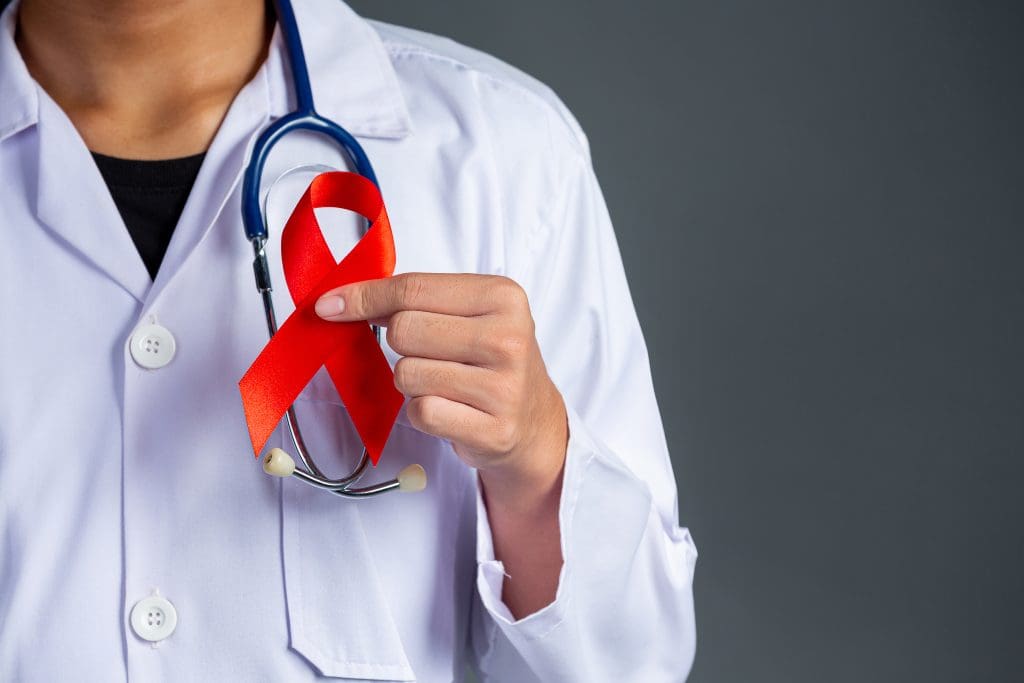How Bad Is Colon Cancer? Understanding Colon Cancer Severity Colon cancer is a big health issue, hitting thousands of people around the world. A diagnosis of colon cancer can be daunting, and knowing how serious it is is key for patients and their families.
We know that colon cancer is one of the most common types of cancer in the U.K. and U.S. Biff Byford, the frontman of SAXON, was diagnosed with bowel cancer, which includes colon cancer. This shows why it’s important to understand the severity and outlook of colon cancer.

Key Takeaways
- Colon cancer is a common type of cancer affecting the large bowel.
- Understanding the severity and prognosis is key for patients.
- Real-life examples show the impact of colon cancer.
- Colon cancer treatment options vary based on the stage and severity.
- Early detection is key to improving colon cancer prognosis.
Understanding Colon Cancer: The Basics
Colon cancer is a common type of cancer that affects many people worldwide. It’s important to know the basics of this disease to understand its impact.
What Is Colon Cancer?
Colon cancer, also known as colorectal cancer, happens when abnormal cells in the colon or rectum grow and multiply uncontrollably. This can cause tumors, some of which are cancerous. Cancerous tumors can spread to other parts of the body.
How Common Is Colon Cancer in the United States?
In the United States, colon cancer is a major health issue. Many new cases are diagnosed every year. It’s most common in people over 50.
Understanding the incidence and risk factors of colon cancer is key. This knowledge helps in early detection and prevention.
Studies show that some patients with colon cancer get chemotherapy after surgery. This helps lower the chance of the cancer coming back. Knowing the basics of colon cancer is vital for effective treatment.
Colon Cancer Severity: An Overview
Colon cancer can vary a lot in its severity. This depends on several key factors. Knowing these factors is important for figuring out the prognosis and creating a good treatment plan.
Factors That Determine Severity
The severity of colon cancer is influenced by several factors. These include the stage of cancer at diagnosis, the characteristics of the tumor, and the patient’s overall health. The stage of cancer is very important. It shows how far the cancer has spread.
Tumor characteristics, like tumor grade and differentiation, also matter a lot. Tumors that are higher-grade grow and spread faster. This makes the cancer more severe.
The Spectrum of Severity
Colon cancer severity ranges from early-stage to advanced disease. Early detection is key to a better prognosis. It allows for timely treatment before the cancer gets worse.
The patient’s overall health and how well they respond to treatment also affect severity. Patients with fewer health issues and a strong response to treatment usually have a better outlook.
Understanding the spectrum of colon cancer severity helps both patients and healthcare providers. It allows us to tailor treatment to each patient’s needs. This improves outcomes and quality of life.
Stages of Colon Cancer Explained
Knowing the stages of colon cancer is key to understanding how serious it is. It helps doctors pick the best treatment. Staging is a process that shows how far the cancer has spread.
Stage 0 (Carcinoma in Situ)
Stage 0 colon cancer is the first stage. It’s when the cancer is only in the innermost lining of the colon or rectum. At this point, treatment is usually very effective, and the outlook is good.
Stage I Colon Cancer
Stage I colon cancer means the cancer has grown into the wall but not to the lymph nodes. It’s considered early-stage. Treatment usually involves removing the tumor surgically. Sometimes, more treatments are suggested to prevent it from coming back.
Stage II Colon Cancer
Stage II colon cancer has grown through the wall and into nearby tissues. But it hasn’t reached the lymph nodes yet. Treatment often includes surgery. Sometimes, chemotherapy is added to lower the chance of it coming back.
Stage III Colon Cancer
Stage III colon cancer has spread to nearby lymph nodes but not to distant parts of the body. Treatment usually combines surgery and chemotherapy. The aim is to remove the cancer and prevent it from coming back.
Early detection and treatment greatly improve survival rates. Understanding the stages helps patients and doctors create a treatment plan that fits the individual’s needs.
The TNM Classification System
Colon cancer staging uses the TNM system. It looks at the tumor, lymph nodes, and if the cancer has spread. This system helps doctors know how serious the cancer is and what treatment to use.
Tumor (T) Classification
The Tumor (T) classification checks the size and spread of the main tumor. It ranges from T0, meaning no tumor, to T4, where the tumor has spread into nearby tissues.
| T Category | Description |
| T0 | No evidence of a primary tumor |
| Tis | Carcinoma in situ: tumor cells are found only in the lining of the colon or rectum |
| T1 | Tumor has grown into the submucosa |
| T2 | Tumor has grown into the muscularis propria |
| T3 | Tumor has grown through the muscularis propria into the pericolorectal tissues |
| T4 | Tumor has grown through the wall of the colon or rectum and into nearby tissues |
Node (N) Classification
The Node (N) classification shows if the cancer has reached nearby lymph nodes. It ranges from N0, no involvement, to N2, extensive involvement.
N Categories and Their Descriptions:
- N0: No regional lymph nodes involvement
- N1: 1-3 regional lymph nodes are involved
- N2: 4 or more regional lymph nodes are involved
Metastasis (M) Classification
The Metastasis (M) classification checks if the cancer has spread to distant areas. It’s M0 for no spread and M1 for distant spread.
“The TNM system is a widely used and accepted method for staging colon cancer, providing a framework for understanding the extent of the disease.”
Knowing the TNM classification helps doctors figure out the cancer’s stage. This is key for choosing the right treatment and predicting how well the patient will do.
Colon Cancer Survival Rates by Stage
Knowing about colon cancer survival rates is key for patients and their families. It helps them understand the prognosis and treatment options. Survival rates change a lot based on the stage of diagnosis.
The stage at diagnosis is very important for the colon cancer prognosis. We will look at the 5-year survival stats. We will also talk about what affects these rates.
5-Year Survival Statistics
The 5-year survival rate is a key measure for colon cancer patients. It shows the percentage of patients alive 5 years after diagnosis.
| Stage at Diagnosis | 5-Year Survival Rate |
| Localized | 90% |
| Regional | 71% |
| Distant | 14% |
The table shows survival rates vary a lot by stage. Early stages have much higher survival rates than distant or metastatic cancer.
“A structured exercise program can improve health and survival in patients with colon cancer,” according to Courneya et al. This shows how important lifestyle changes are for colon cancer survival rates.
Factors Affecting Survival Rates
Many things can change survival rates for colon cancer patients. These include the stage, overall health, and how well they respond to treatment. Treatments like surgery, chemotherapy, and radiation are key to better survival.
- Treatment Options: Surgery, chemotherapy, and radiation therapy are common treatments.
- Lifestyle Changes: Eating well and exercising regularly can help survival.
- Overall Health: Other health issues can impact survival rates.
By knowing these factors and making smart choices, patients can better their colon cancer prognosis and survival chances.
Early Stage Colon Cancer: Prognosis and Treatment
Patients with early-stage colon cancer usually have a good chance of survival. Early detection and treatment are key to managing the disease well.
Treatment Options
Surgery is often the main treatment for early-stage colon cancer. The aim is to remove the cancerous part of the colon and some healthy tissue. Nearby lymph nodes are also removed.
In some cases, minimally invasive surgical techniques are used. This can lead to faster recovery times.
After surgery, chemotherapy might be suggested. It helps kill any cancer cells left behind. This can lower the chance of cancer coming back.
Expected Outcomes and Recovery
The outlook for early-stage colon cancer patients is usually good. With the right treatment, many can live a long time. The stage at diagnosis, overall health, and treatment response play a big role.
Recovery times vary. Those who have surgery might need weeks to get better. They may have to change their diet and lifestyle. It’s important to follow up to watch for any signs of cancer coming back and manage treatment side effects.
Advanced Colon Cancer: What to Expect
Advanced colon cancer brings its own set of challenges. We need a detailed treatment plan to tackle it. It’s key to know the treatment options and possible complications.
Treatment Approaches for Advanced Disease
For advanced colon cancer, we use a mix of therapies. This helps manage the disease and ease symptoms. These treatments include:
- Chemotherapy: to slow cancer cell growth
- Targeted therapy: to target specific cancer cell traits
- Palliative care: to improve life quality by managing symptoms
Our team works with patients to find the best treatment. We consider each person’s needs and wishes.
Managing Complications
Advanced colon cancer can cause problems like bowel obstruction or bleeding. We actively manage these issues. This may involve:
- Surgical intervention to fix bowel obstruction or bleeding
- Palliative procedures to better symptoms and life quality
- Close monitoring to spot and tackle new problems fast
Knowing the complications of advanced colon cancer helps us plan better. This way, we can improve patient outcomes and life quality.
Metastatic Colon Cancer: When Cancer Spreads
When colon cancer spreads to other parts of the body, it’s a big change. Treatment shifts to focus on easing symptoms and improving life quality.
Common Sites of Metastasis
Colon cancer can spread to many places, but the liver is the most common. This is because of its blood supply and close location to the colon. Other common places include the lungs, peritoneum, and distant lymph nodes.
| Site of Metastasis | Frequency | Clinical Implications |
| Liver | High | Liver function monitoring is key |
| Lungs | Moderate | Respiratory symptoms may occur |
| Peritoneum | Moderate | Potential for bowel obstruction |
Liver metastasis is common because of how the colon drains blood into the liver. Regular liver checks are very important for those with advanced colon cancer.
Treatment Goals for Metastatic Disease
The main goals in treating metastatic colon cancer are to control symptoms, keep quality of life good, and maybe extend life. Treatment plans are made just for each patient, considering how far the cancer has spread, overall health, and what the patient wants.
Palliative care is very important in treating metastatic colon cancer. It aims to reduce pain, improve nutrition, and help with mental health. This care helps patients live better, even with advanced cancer.
Knowing where cancer often spreads and what treatment goals are helps doctors create better care plans. This is for patients with advanced colon cancer.
Life Expectancy and Colon Cancer
The outlook for colon cancer patients depends on several key factors, including the cancer’s stage. Knowing these factors is vital for understanding life expectancy and treatment choices.
Factors Influencing Life Expectancy
Several factors affect the life expectancy of colon cancer patients. These include:
- The stage of cancer at diagnosis
- The overall health of the patient
- The effectiveness of the chosen treatment plan
- Genetic factors
Stage at diagnosis is a major factor. Early-stage colon cancer has a much better outlook than advanced stages.
Stage 4 Colon Cancer Life Expectancy
Stage 4 colon cancer, also known as metastatic colon cancer, is more challenging. The cancer has spread to distant organs or lymph nodes, making treatment harder.
Recent statistics show the 5-year survival rate for stage 4 colon cancer is lower than earlier stages. But, life expectancy can vary based on how far the cancer has spread and how well it responds to treatment.
Improving Prognosis Through Treatment
While stage 4 colon cancer is serious, treatments can improve life expectancy and quality of life. These include:
- Targeted therapies that focus on specific cancer cells
- Chemotherapy to reduce tumor size and slow progression
- Surgery to remove tumors or affected portions of the colon
- Palliative care to manage symptoms and improve comfort
By understanding the factors that influence life expectancy and exploring available treatments, patients can make informed decisions. This can potentially improve their prognosis.
Symptoms and Their Relationship to Severity
It’s important to know how colon cancer symptoms relate to its severity. The symptoms can change based on how far the disease has spread.
Early Warning Signs
Spotting colon cancer early is key to better treatment. We need to watch for early signs like changes in bowel habits, blood in the stool, or stomach pain. These signs can be easy to miss.
Common early warning signs include:
- Persistent changes in bowel habits, such as diarrhea or constipation
- Rectal bleeding or blood in the stool
- Abdominal pain or discomfort
- Weakness or fatigue
- Unexplained weight loss
If you notice these symptoms, see a doctor right away. Early treatment can make a big difference in how well you do.
Symptoms of Progressive Disease
As colon cancer gets worse, symptoms can get more serious. We’ll look at what happens as the disease advances.
Symptoms of advanced colon cancer may include:
| Symptom | Description |
| Severe abdominal pain | Pain that persists and can be severe |
| Bowel obstruction | Blockage of the intestine, leading to severe constipation or inability to pass stool |
| Metastasis symptoms | Symptoms related to the spread of cancer to other parts of the body, such as jaundice if the cancer spreads to the liver |
A well-known oncologist, once said,
“The key to managing colon cancer lies in early detection and understanding its symptoms. By being aware of the early warning signs, patients can seek medical attention promptly, improving their chances of successful treatment.”
It’s vital to recognize colon cancer symptoms and how they relate to the disease’s severity. This knowledge helps patients get the right care on time, which can improve their chances of recovery.
Tumor Characteristics and Aggressiveness
Tumor characteristics are key in figuring out how serious colon cancer is. Knowing these details helps doctors create the best treatment plans for each patient.
Tumor Grade and Differentiation
The grade of a tumor shows how much it looks like normal cells under a microscope. Grades range from 1 to 3, with Grade 1 being the most like normal cells and Grade 3 being the least. A higher grade means a more aggressive tumor.
Tumor differentiation is linked to its grade. Well-differentiated tumors look a lot like normal tissue. Poorly differentiated tumors have very abnormal cells. Knowing this helps decide treatment and what the future might hold.
| Tumor Grade | Cell Appearance | Aggressiveness |
| Grade 1 | Cells look like normal cells | Less aggressive |
| Grade 2 | Cells are somewhat abnormal | Moderately aggressive |
| Grade 3 | Cells are very abnormal | Highly aggressive |
Molecular Markers and Their Significance
Molecular markers are special genes or proteins that tell us about a tumor’s behavior. In colon cancer, some markers are key in predicting how well a tumor will respond to treatment. For example, KRAS and BRAF mutations can change how well a tumor responds to certain drugs.
Knowing a tumor’s molecular makeup helps tailor treatments. For instance, tumors with microsatellite instability-high (MSI-H) might do well with immunotherapy. So, these markers are vital in figuring out how aggressive a tumor is and what treatment to choose.
By looking at tumor characteristics like grade, differentiation, and molecular markers, we get a clearer picture of colon cancer’s aggressiveness. This detailed understanding helps doctors create more effective treatment plans that meet each patient’s unique needs.
Risk Factors That Influence Colon Cancer Outcomes
Knowing the risk factors for colon cancer is key to preventing and managing it. Different factors can affect how severe colon cancer is and its outcome. Being aware of these can help people take steps to lower their risk.
Modifiable Risk Factors
Modifiable risk factors are things you can change. These include your lifestyle and diet. Eating a lot of red and processed meat can increase your risk. But, eating more fruits, vegetables, and whole grains can help lower it.
Regular physical activity also helps reduce the risk of colon cancer.
“A healthy diet and regular exercise are key to preventing colon cancer,” health experts say. Keeping a healthy weight and not smoking are also important.
Non-Modifiable Risk Factors
Non-modifiable risk factors are things you can’t change. These include your age, family history, and genetics. The risk of colon cancer goes up with age, with most cases happening after 50. If you have a family history of colon cancer or certain genetic syndromes, your risk is higher.
- Age: The risk increases significantly after the age of 50.
- Family History: Having a first-degree relative with colon cancer.
- Genetic Syndromes: Conditions like Lynch syndrome and Familial Adenomatous Polyposis (FAP).
Knowing these non-modifiable risk factors helps both you and your doctor make better choices about screening and prevention.
Recurrence: Understanding the Risk
It’s key for patients who’ve had colon cancer treatment to know about recurrence risk. Recurrence happens when cancer comes back after treatment. It can return to the same spot or somewhere else in the body.
Recurrence is a big worry, mainly for those with advanced disease. We’ll look at what ups the risk and why keeping an eye on things is so important.
Factors That Increase Recurrence Risk
Several things can make recurrence more likely. These include:
- Stage of cancer at diagnosis: Stage III or IV colon cancer patients face a higher risk.
- Tumor characteristics: Bigger or higher-grade tumors are more likely to come back.
- Lymph node involvement: Cancer in lymph nodes ups the recurrence risk.
- Margins: Cancer near the surgical margins increases recurrence risk.
Knowing these factors helps doctors plan better follow-up care for each patient.
Monitoring and Follow-up Care
Regular checks and care are key to catching recurrence early. The follow-up plan might include:
| Test or Procedure | Frequency |
| Colonoscopy | Every 3-5 years |
| CT scans | Every 6-12 months for the first 3 years |
| Blood tests (CEA) | Every 3-6 months for the first 3 years |
Follow-up care spots recurrence early and helps with any concerns or symptoms. This improves patients’ quality of life.
By knowing the recurrence risk factors and sticking to follow-up care, patients can lower their risk. This helps improve their outcomes.
Quality of Life During and After Colon Cancer
It’s important to know how colon cancer affects life quality. This is true for both patients and their healthcare team. The disease and its treatments can have big effects on both body and mind.
Physical Impacts
The physical effects of colon cancer and its treatment are wide-ranging. Surgery, chemotherapy, and radiation therapy can cause fatigue, pain, and changes in bowel habits. These changes can really impact a person’s daily life and happiness.
Psychological and Social Considerations
Colon cancer also has deep psychological and social effects. Patients might feel anxiety, depression, and fear of recurrence. This can strain their relationships with family and friends. Support from loved ones and groups is key in dealing with these issues.
In summary, improving life quality during and after colon cancer treatment needs a full approach. It must tackle both physical and mental impacts. Knowing these challenges helps healthcare teams support patients better.
Advancements in Colon Cancer Treatment
Our understanding of colon cancer is growing, leading to better treatments for each patient. The field of colon cancer treatment is evolving fast. This is thanks to new research and technologies.
Targeted Therapies
Targeted therapies are changing how we treat colon cancer. They are more precise than old chemotherapy methods. These therapies aim at specific molecules in cancer cells, protecting healthy tissues.
Drugs targeting VEGF and EGFR are showing great promise. They help improve treatment results for advanced colon cancer patients.
Immunotherapy Approaches
Immunotherapy is another big leap in colon cancer treatment. It uses the body’s immune system to fight cancer. Checkpoint inhibitors are a key part of this, helping the immune system attack cancer cells better.
Though it’s early for many, immunotherapy brings hope for better treatment results.
Minimally Invasive Surgical Techniques
Surgical techniques for colon cancer are also getting better. Minimally invasive surgery, like laparoscopic and robotic-assisted, offers smaller cuts and less pain. These methods are becoming more common and are key in fighting colon cancer.
In summary, colon cancer treatment is getting a boost from many areas. Targeted therapies, immunotherapy, and better surgery options are all helping. As we learn more about colon cancer, we can expect even more progress in treating it.
Conclusion: Putting Colon Cancer Severity in Perspective
Knowing how serious colon cancer is is key for patients to choose the right care. We’ve looked at how severe colon cancer is, including its stages, outlook, and treatment choices.
How severe colon cancer is depends on several things. These include the cancer’s stage, the tumor’s features, and the patient’s health. Understanding these helps patients make better choices about their treatment.
Early-stage colon cancer has a better chance of being treated successfully. Treatments can range from surgery to special medicines. But, advanced colon cancer needs a more detailed treatment plan. This often includes a mix of therapies.
By knowing about colon cancer’s severity and treatment results, patients can help manage their care. We hope this article has given a clear view of colon cancer severity. This should help patients make informed choices and feel confident in their treatment journey.
FAQ
What is the severity of colon cancer, and how is it determined?
Colon cancer’s severity depends on several factors. These include the cancer’s stage, the tumor’s characteristics, and the patient’s health. Knowing these factors helps understand the disease’s severity.
What are the different stages of colon cancer?
Colon cancer is staged from 0 to IV. Stage 0 is the earliest, and stage IV is the most advanced. The stages are based on tumor growth, lymph node involvement, and if the cancer has spread.
What is the TNM classification system, and how is it used in colon cancer?
The TNM system is a way to stage colon cancer. It looks at the tumor size and extent (T), lymph node involvement (N), and if the cancer has spread (M). This system helps doctors predict outcomes and plan treatments.
What are the survival rates for colon cancer, and how do they vary by stage?
Survival rates for colon cancer depend on the stage. People with early-stage cancer have a much higher 5-year survival rate than those with advanced disease.
What are the treatment options for early-stage colon cancer?
Early-stage colon cancer can be treated with surgery, adjuvant therapy, and other supportive treatments. The goal is to remove the tumor and prevent it from coming back.
How does colon cancer spread, and what are the common sites of metastasis?
Colon cancer can spread to the liver, lungs, and lymph nodes. Knowing where it often spreads helps doctors plan treatments and manage symptoms.
What are the risk factors that influence colon cancer outcomes?
Risk factors for colon cancer include lifestyle, genetics, and environment. Understanding these factors is key to preventing and managing the disease.
How can recurrence be prevented or managed in colon cancer patients?
Preventing or managing recurrence is a big concern for colon cancer patients, mainly those with advanced disease. Regular check-ups and follow-up care are important for early detection and management.
What are the advancements in colon cancer treatment, and how do they improve patient outcomes?
New treatments like targeted therapies, immunotherapy, and minimally invasive surgery have improved outcomes and quality of life for patients. These advancements offer hope for those with colon cancer.
How does colon cancer and its treatment affect quality of life?
Colon cancer and its treatment can affect patients physically, mentally, and socially. Understanding these impacts is vital for providing full care and support.
What is the prognosis for stage 4 colon cancer?
The prognosis for stage 4 colon cancer varies based on treatment options and overall health. Knowing the prognosis and treatment goals is important for managing the disease.
How can tumor characteristics, such as grade and differentiation, affect colon cancer severity?
Tumor characteristics like grade and differentiation are key in determining colon cancer’s aggressiveness. Understanding these characteristics is essential for planning treatment and predicting outcomes.










